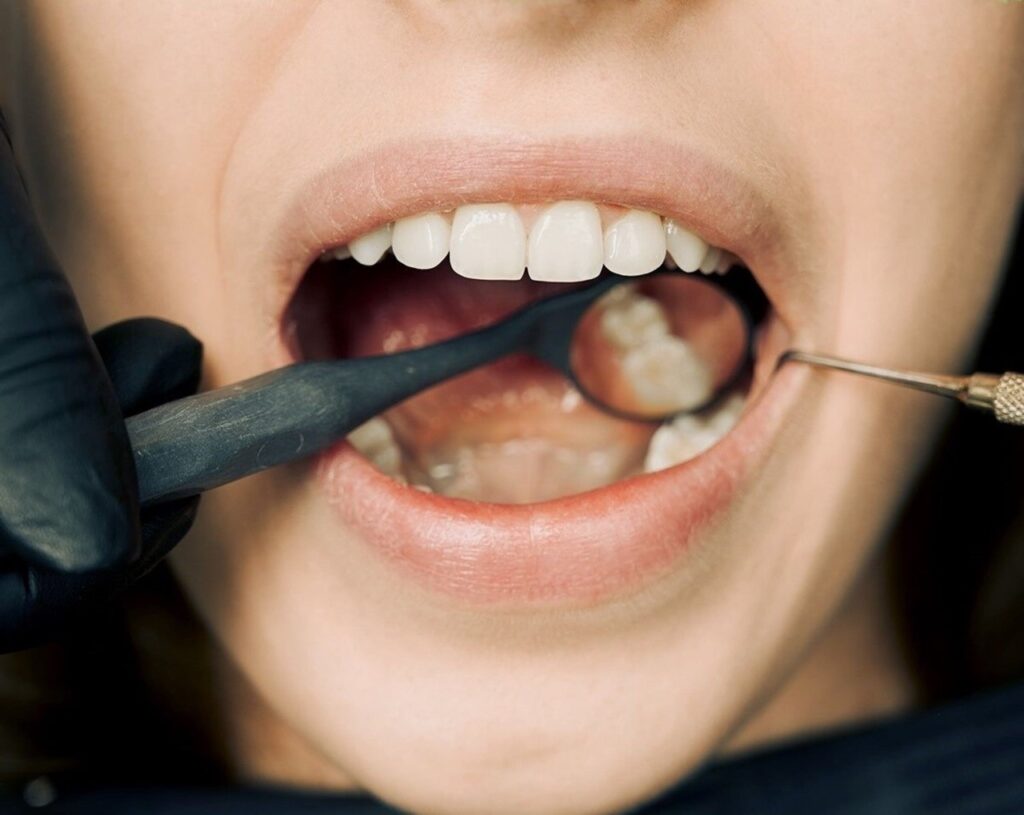Alternative Treatments
Home Remedies For Gum Inflammation
It’s normal to have gum inflammation, which is also called swollen gums or gingival swelling. It can be painful and uncomfortable. It can turn into a more dangerous gum disease if you don’t treat it. Even though you should see a dentist for a good diagnosis and treatment plan, there are some things you can do at home to help reduce swelling and pain.
What Causes Gum Inflammation?
There are many things that can make your gums swell, such as not taking care of your teeth properly, plaque and tartar buildup, viral or fungal infections, dental appliances that don’t fit right, hormonal changes during pregnancy, and some medicines. To get rid of the swelling effectively, it is important to find out why it is happening.

Symptoms of Gum Inflammation
If you have gum inflammation, you might have red, swollen gums, gums that bleed when you brush or floss, bad breath, more space between your teeth, and teeth that feel loose or hurt. When you have these signs, you should take care of them right away to avoid more problems.
Home Remedies for Gum Inflammation
Home remedies for gum diseases can help relieve symptoms and make your oral health better, but they can’t fix them. Feel free to try these home remedies that work:
1.Saltwater
An easy and effective way to treat gum inflammation is to rinse your mouth with saltwater. One teaspoon of salt mixed with eight ounces of warm water should be used to rinse your mouth for thirty seconds. Do this twice or three times a day until the swelling goes down. The saltwater rinse lowers swelling and speeds up the mending process.
2. Turmeric Gel
Curcumin, which is found in turmeric, can reduce inflammation and kill germs. Mix turmeric powder, salt, and mustard oil together to make a paste. You should put this paste on your gums and wait about 10 minutes before you rinse it off with water. Do this three times a day until the swelling goes down.
3. Oil Pulling
An old Ayurvedic method called “oil pulling” involves swishing oil around in your mouth for 20 minutes. People think that this will cut down on oral germs and improve gum health. For oil pulling, you can use either coconut oil or olive oil. Start with one to two teaspoons of oil and add more as needed. For twenty minutes, move the oil around in your mouth and then spit it out. After that, rinse your mouth with water.
4. Cold Compress
Putting a cold compress on your gums can help reduce swelling and ease the pain that comes with gum inflammation. Put a clean towel around a bag of crushed ice and press it against the hurt area for five minutes. For the first two days, do this twice or three times a day.
5. Clove Oil
Clove oil has been used for hundreds of years to treat pain and kill germs. Put a few drops of clove oil on the gums that are swollen and rub them gently. Also, clove oil can help get rid of bad breath. Do this every couple of hours to feel better.
6. Hydrogen Peroxide
Hydrogen peroxide can help get rid of plaque and stop gum bleeding. 3% hydrogen peroxide and water should be mixed in equal parts. Before you spit this out, swish it around in your mouth for about 30 seconds. Do this three or four times a week until the swelling goes down.

7. Baking Soda
To get rid of buildup and gum infections, baking soda can help. Mix baking soda and a little salt in water to make a solution. Brush this stuff around in your mouth for a few minutes, then spit it out. For best results, do this cure three times a day.
8. Lemon Juice
Lemon juice can help kill germs that are making your gums swell because it is antimicrobial. One tablespoon of lemon juice mixed with a glass of warm water should be gargled with. After you spit it out, rinse your mouth with clean water. Do this twice a day until the swelling goes down.
9. Essential Oils
Essential oils like peppermint, chamomile, and tea tree are antibacterial and can help reduce swelling in the gums. Add 8 ounces of warm water to three drops of any of these essential oils. Rinse your mouth with this for 30 seconds and then spit it out. Do this twice every day until the swelling goes down.
10. Aloe Vera Gel
Aloe vera juice can help reduce gum inflammation because it heals and reduces inflammation. Put some pure aloe vera cream on the hurt area and let it stay there for as long as you can. After that, rinse your mouth with water. Do this twice a day to feel better.
11. Turmeric
Because it reduces inflammation, turmeric can help make gums less swollen. Mix turmeric powder, salt, and mustard oil together to make a paste. You should put this paste on your gums and wait about 10 minutes before you rinse it off. Do this three times a day until the swelling goes down.
12. Apple Cider Vinegar
Apple cider vinegar can help your mouth’s pH level get back to normal and reduce swelling in your gums. Add a tablespoon of apple cider vinegar to a glass of water, and then use this to rinse your mouth. After you spit it out, rinse your mouth with clean water. It works best to do this two or three times a day.

When to Seek Medical Help?
Even though home remedies can help for a short time, you should see a dentist if your gum inflammation lasts longer than two weeks, and causes severe pain, excessive bleeding, or other symptoms that are cause for worry. A dentist can figure out why your gums are red and swollen and suggest the best way to treat it.
Conclusion
When I think about how important it is to take care of my teeth and gums, I understand that swollen gums are a common problem that can have a number of different causes. It’s interesting to think about how something as easy as gum inflammation can be caused by a lot of different things. I’ve learned that home cures can help ease the pain of gum inflammation for a short time, but they are not long-term solutions.
During my own struggles, I’ve found comfort in the fact that good oral health is very important. It’s becoming clearer to me that how clean our teeth are has a direct effect on how healthy our gums are. Getting regular dental check-ups has become an important part of this self-care practice. The dentist’s skill allows for a full examination and a personalized treatment plan, which guarantees a complete solution to any underlying problems causing the swelling.
Finally, learning about swollen gums has not only taught me more about oral health, but it has also made me realize how important it is to be responsible and get complete care. As a gentle reminder, it’s important to keep up with regular dental visits, good oral hygiene, and getting professional help when you need it. These are all things that will help your gums stay healthy and your general health.


